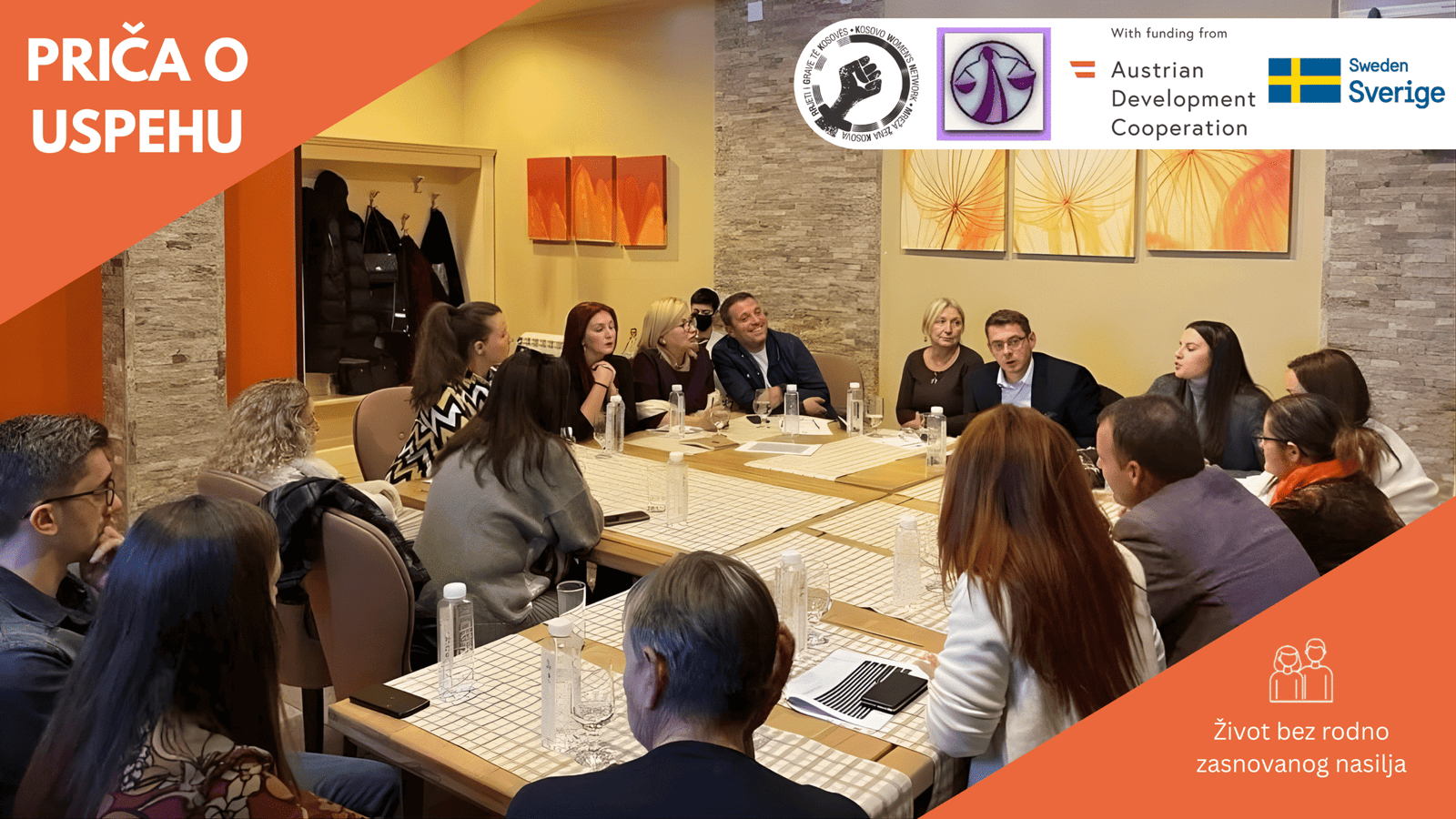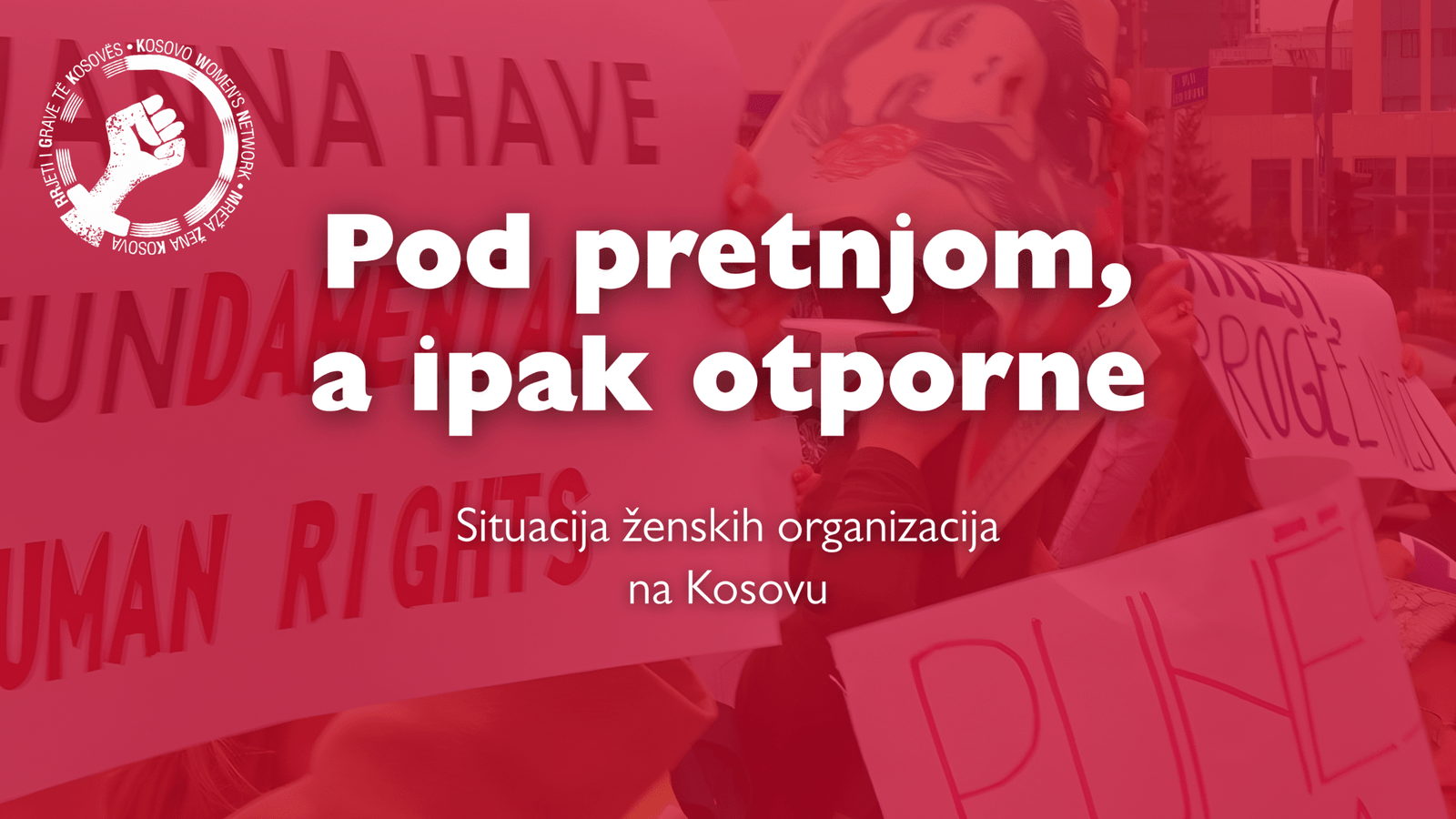The 2019 cycle of the Stabilisation and Association Agreement Subcommittees will begin in February with a meeting on Innovation, Information Society and Social Policy, where issues such as telecommunications, media, social policies, employment and education will be discussed.
The sub-committees are mechanisms of the technical dialogue, as part of the Process of Stabilization and Association (SAA) for Kosovo. During these meetings, the European Commission and the Kosovo government discuss technical and policy issues and progress in making the necessary reforms related to Kosovo’s EU Accession process. Prior to the upcoming Policy Dialogue meeting between the Kosovo Government and European Union (EU) representatives, the EU Office in Kosovo organized a public consultation with civil society organisations (CSOs) on Jan. 28 in Pristina, attended by the Kosovo Women’s Network (KWN), among others.
KWN delivered practical suggestions and concrete policy recommendations to EU officials related to education reforms, labour and social welfare. KWN recommended closer monitoring of the gender review of education curricula towards transforming existing gender norms through education, including involvement of women rights CSOs in this process, as well as follow-up actions to train teachers based on the reforms. Suzana Bytyci-Jagxhiu, representative of the EU Office in Kosovo, suggested that CSOs should be more involved in monitoring the implementation of the Law on School Textbooks.
Regarding access to education, KWN emphasized the need to allocate a budget for personal assistants for children with disabilities and for the government to ensure accessible public transport so that all children can realize their right to education. KWN noted the gender segregation that exists in academic pathways, as described in the recent Kosovo Gender Analysis. KWN also recommended that the Ministry of Education, Science and Technology together with municipalities put in place policies that can enhance the gender balance at all levels, in accordance with the Law on Gender Equality.
Related to labour and social welfare, KWN addressed the issue of amendments needed for the current Labour Law, particularly related to maternal, paternal and parental leave, as recommended based on KWN’s, among others’, prior research. KWN also recommended transposing the concept of self-employed women, stating that the law needs to address their right to equal parental leave and to benefit from social and health insurance. Together with other civil society representatives, KWN brought attention to the lack of child-care options, particularly in rural areas, which research has shown to directly hinder women’s employment.
A highlight of this consultation was discussion surrounding the government’s approach to addressing the informal economy. KWN reiterated its previously raised recommendation that in its efforts to address the informal economy, the government must conduct a gender analysis to inform better tackling of this issue, using a “do no harm approach”. KWN also recommended that labour inspectors need further training on gender equality-related inspections associated with health and safety at work. EU representatives agreed that the increase in the number of labour inspectors is insufficient and that inspectors need to increase their professional capacity as well.
Each SAA meeting will result in jointly agreed follow-up actions for the Kosovo authorities to take. KWN hopes that these actions will consider the recommendations made by civil society representatives.
Additionally, EU officials stated that they will consider these issues in the annual Kosovo Country Report for 2019.
KWN’s preparation and advocacy work related to integrating a gender perspective in the EU Accession process is supported by the Kvinna till Kvinna Foundation, with financial support from Sida. The views herein represent those of KWN and are not necessarily those of its financial supporters.







